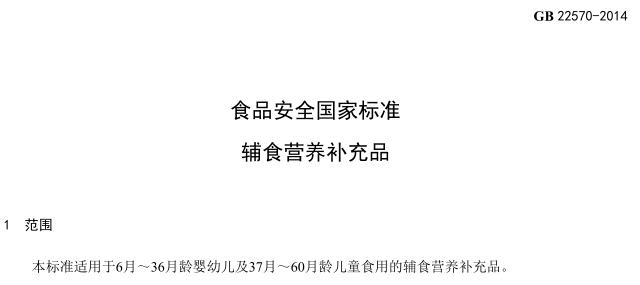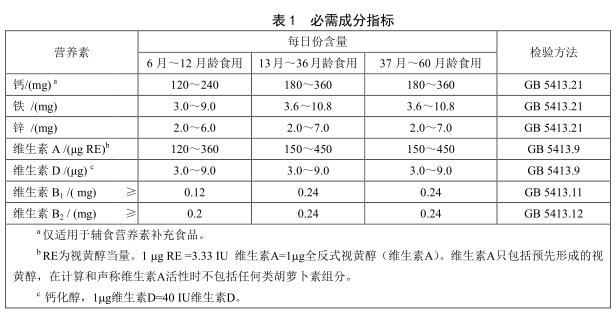Zinc exists in many enzyme systems, such as carbonic anhydrase, respiratory enzyme, lactate dehydrogenase, superoxide dismutase, alkaline phosphatase, DNA and RNA polymerase, etc. It is the synthesis of nucleic acid, protein, carbohydrate, and vitamin A essential substances. Zinc is one of the essential trace elements of the human body. It plays an extremely important role in the growth and development of the human body. It is often called the "flower of life" and the "source of intelligence". It can promote growth and development, improve immunity, and improve The role of taste. However, zinc, an essential trace element for the human body, cannot be synthesized in the body, and zinc supplementation can only be supplied by food. A survey on the daily zinc intake of Chinese children between 1 and 6 years old shows that the daily intake of zinc only reaches 64% of the dietary supply standard, which is far from meeting the needs of children's growth and development. When normal food is difficult to ensure nutrition, the World Health Organization recommends zinc salt as zinc source.[1]
In 1500, people began to use zinc-containing minerals to treat skin diseases; in 1934, scientists discovered that the development of animals is inseparable from zinc; in 1967, American scientist W J Pories found that oral zinc supplement help with wound healing[2]. In 2011, the Cochrane Library proved that zinc supplements can relieve severe symptoms caused by colds, shorten the course of the disease, and improve human immunity.
The latest survey results of the Institute of Nutrition and Food Hygiene of the Chinese Academy of Preventive Medicine[3]show that the zinc deficiency rate of Chinese children is as high as 60%. These children’s daily zinc intake is less than half of the WHO recommended amount. This means that 1 in 2 children is zinc deficient.
Zinc deficiency in children will occur:
1. Loss of appetite, picky eaters, anorexia, refusal to eat, generally reduced appetite, no hunger, and no active eating;
2. Random eating of strange things. For example, nail-biting, clothing, toys, hard objects, eating hair, confetti, raw rice, wall ash, soil, sand, etc.;
3. Slow growth and development, height 3-6 cm lower than the same age group, light weight 2-3 kg;
4. Low immunity, frequent colds and fever, repeated respiratory infections such as tonsillitis, bronchitis, pneumonia, sweating, sleep night sweats, etc.;
5. White spots on nails, long barbs on fingers.
6. Hyperactivity, slow reaction, lack of concentration, poor learning ability;
7. When there is trauma, the wound is not easy to heal; it is prone to dermatitis and refractory eczema;
Zinc is mainly found in seafood and animal offal. Other foods contain very little zinc. There is almost no zinc in water, staple foods, and eggs that children love to eat, and there are not many vegetables and fruits that contain zinc. Lean meat, fish, egg yolks, etc. contain zinc.
According to laboratory tests, animal foods generally contain more zinc, about 3-5 mg of zinc per 100 grams of animal foods, and the amino acids produced by the decomposition of animal proteins can also promote the absorption of zinc. There is less zinc in plant foods than in animal foods. Approximately 1 mg of zinc is contained in every 100 g of plant food. Beans, peanuts, millet, and radishes are relatively high in zinc in various plant foods.
Anorexia is common among Chinese children, and because children have a much smaller range of food choices than adults, it is less likely to achieve zinc supplementation through food. Therefore, the National Health and Planning Commission of the People's Republic of China issued on April 29, 2014, the national food safety standard for food safety supplements for 6-60 months.


The essence of children's anorexia is not the digestive problems caused by food, but the essence of children's digestive function problems. Because children’s taste buds and gastrointestinal digestive functions are still developing, they are not sensitive to food taste and their ability to digest food is imperfect, leading to anorexia. It just so happens that zinc is an essential substance in the development of taste buds and gastrointestinal digestion function, which can ensure and promote the normal development of taste buds and gastrointestinal digestion function, improve children’s food sensitivity and gastrointestinal digestion function[4], children’s digestion The functional development is normal, and the child's appetite is naturally strong. Zinc supplementation can fundamentally solve the problem of anorexia. Therefore, anorexia in children is mostly due to zinc deficiency. It should be noted that calcium and zinc cannot be supplemented at the same time because calcium will preempt the carrier of zinc and affect absorption. If you must add calcium and zinc at the same time, at least 30 minutes apart, so that the body can absorb the two nutrients reasonably.
A study by Dr. Meenu Singh of India found that children who have been supplemented with zinc for more than 5 months rarely catch colds. This has also been found in domestic clinical practice that zinc supplementation can improve the immune function of children and shorten the time of illness. The “Journal of Infectious Diseases” once published the results of a study saying: No matter what age group of people, during a cold, zinc supplementation can reduce the duration of the cold from 7 days to 4 days, and reduce the cough from 5 days to 2 days[5]. The World Health Organization (WHO)/United Nations Children’s Fund (UNICEF) also jointly recommended that zinc supplementation can shorten the course of children's diarrhea, and zinc supplementation for 10-14 days can reduce the incidence of diarrhea in children within 3 months. At the same time, scientific research has found that continuous zinc supplementation in children for more than 3 months can reduce the chance of suffering from upper respiratory tract infections 4 times a year. The above-mentioned research results show that zinc supplementation plays an extremely important role in improving the body's resistance and keeping children healthy. For adults and the elderly, zinc supplementation to improve immunity and fight disease is also of significance.
Zinc is an important factor in promoting the development of immune organs. "Foreign Medical Geography" published research results[6]: Zinc deficiency can lead to atrophy of the thymus, spleen, and lymph nodes, which are important immune organs and reduce weight by 20%-40%. At the same time, Japanese scholars pointed out[7]: Zinc deficiency will reduce the function of immune T cells. Medical research has found that 90% of human diseases are related to immunity. Sufficient zinc can improve the immune function of the thymus gland, T lymphocyte attack, and destroy pathogenic microorganisms, and improve immunity, thereby reducing the possibility of children being infected with various epidemic diseases.
[1]. Kong Fanling. The relationship between the survey of zinc deficiency in preschool children and dietary structure[J]. Digest of the latest world medical information: electronic edition, 2013(28):164-164.
[2].Pories W, Henzel J, Rob C, et al. ACCELERATION OF WOUND HEALING IN MAN WITH ZINC SULPHATE GIVEN BY MOUTH[J]. Lancet, 1967, 289(7482):121-124.
[3]. Liu Baolin. Prevention of zinc deficiency in children is important [J]. Family Medicine, 1998.
[4]. Berdanier, Carolyn D.; Dwyer, Johanna T.; Feldman, Elaine B. (2007). Handbook of Nutrition and Food. Boca Raton, Florida: CRC Press. ISBN 978-0-8493-9218-4.
[5].Das RR, Singh M. Notice of Retraction: Das RR, Singh M. Oral Zinc for the Common Cold. JAMA. 2014;311(14):1440-1441.[J]. Jama, 2016, 316( 24): 2678.
[6]. The content is selected from "Foreign Medical Geography Volume" (Volume 23, Issue 2, June 2002)
[7]. Selected from "Introduction to Japanese Medicine" (1991)


 Address:No. 810,Building D, Riverside Financial and Commercial Center, No. 112 Chazishan East Rd, Yuelu District, Changsha City, P.R. of China
Address:No. 810,Building D, Riverside Financial and Commercial Center, No. 112 Chazishan East Rd, Yuelu District, Changsha City, P.R. of China Tel:0086-731-84253199
Tel:0086-731-84253199  Email:rawmaterial@yazetrading.com
Email:rawmaterial@yazetrading.com